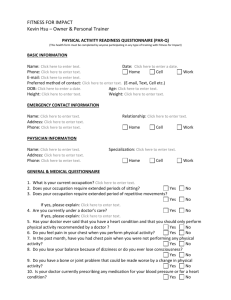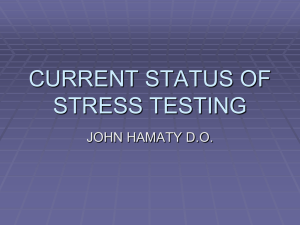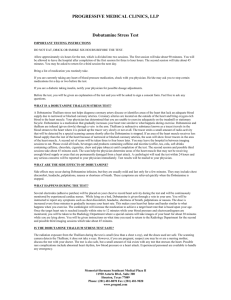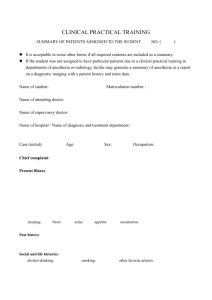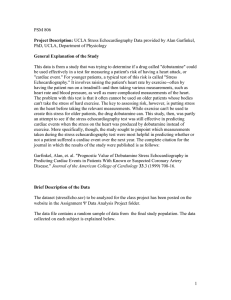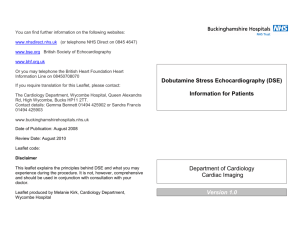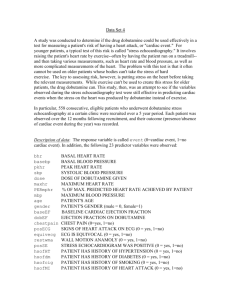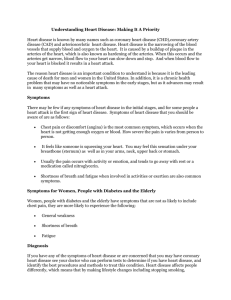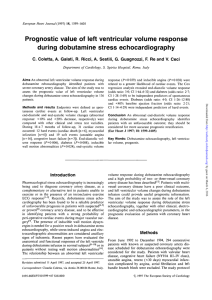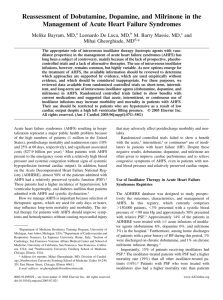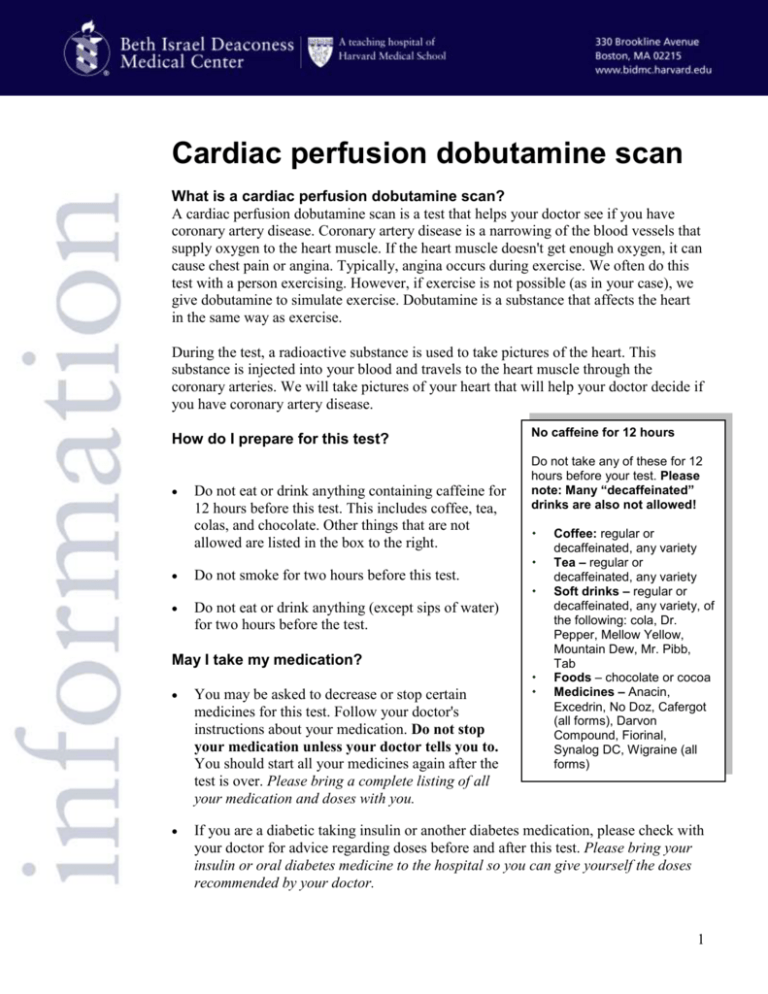
Cardiac perfusion dobutamine scan
What is a cardiac perfusion dobutamine scan?
A cardiac perfusion dobutamine scan is a test that helps your doctor see if you have
coronary artery disease. Coronary artery disease is a narrowing of the blood vessels that
supply oxygen to the heart muscle. If the heart muscle doesn't get enough oxygen, it can
cause chest pain or angina. Typically, angina occurs during exercise. We often do this
test with a person exercising. However, if exercise is not possible (as in your case), we
give dobutamine to simulate exercise. Dobutamine is a substance that affects the heart
in the same way as exercise.
During the test, a radioactive substance is used to take pictures of the heart. This
substance is injected into your blood and travels to the heart muscle through the
coronary arteries. We will take pictures of your heart that will help your doctor decide if
you have coronary artery disease.
How do I prepare for this test?
Do not eat or drink anything containing caffeine for
12 hours before this test. This includes coffee, tea,
colas, and chocolate. Other things that are not
allowed are listed in the box to the right.
No caffeine for 12 hours
Do not take any of these for 12
hours before your test. Please
note: Many “decaffeinated”
drinks are also not allowed!
Do not smoke for two hours before this test.
Do not eat or drink anything (except sips of water)
for two hours before the test.
May I take my medication?
Coffee: regular or
decaffeinated, any variety
Tea – regular or
decaffeinated, any variety
Soft drinks – regular or
decaffeinated, any variety, of
the following: cola, Dr.
Pepper, Mellow Yellow,
Mountain Dew, Mr. Pibb,
Tab
Foods – chocolate or cocoa
Medicines – Anacin,
Excedrin, No Doz, Cafergot
(all forms), Darvon
Compound, Fiorinal,
Synalog DC, Wigraine (all
forms)
You may be asked to decrease or stop certain
medicines for this test. Follow your doctor's
instructions about your medication. Do not stop
your medication unless your doctor tells you to.
You should start all your medicines again after the
test is over. Please bring a complete listing of all
your medication and doses with you.
If you are a diabetic taking insulin or another diabetes medication, please check with
your doctor for advice regarding doses before and after this test. Please bring your
insulin or oral diabetes medicine to the hospital so you can give yourself the doses
recommended by your doctor.
1
What should I wear?
Please wear comfortable clothes that break at the waist (shirt or blouse). Electrodes will
be placed on your chest so that we can monitor your heart. Women must remove their
bras before the test.
What happens during the test?
There are three parts to this test: taking pictures, receiving the dobutamine, and taking
more pictures.
1. For this part of the test, we will put an intravenous (IV) line in your arm. This will
feel like a pinprick, like when you have blood drawn. The radioactive substance is
then injected through the IV. You will not feel anything from this injection. We will
wait 30-45 minutes while the radioactive material circulates through your body.
Then we will take pictures of your heart with a special camera for about 30 minutes.
You will be lying down for this part of the test.
2. You will be connected to an EKG monitor. We will take your blood pressure many
times during this part of the test. Dobutamine will be injected into your IV. You
should tell someone if you feel any symptoms. Possible side effects include slight
nausea, chest pain, palpitations (fluttering in the chest), or dizziness. If you have
symptoms that are severe, we can give you a medicine to reverse the effects of the
dobutamine.
Immediately after getting the dobutamine, the radioactive substance will be injected
again into your IV. You will not feel anything from this injection. You will be
monitored for another 15 minutes. You will then wait another 15 minutes in the
waiting room while the radioactive substance circulates in your bloodstream.
3. The third part of the test is taking more pictures. You will lie down as before and the
camera will take pictures for about 30 minutes.
How long will the test take?
The test takes a total of 2-3 hours.
How should I care for myself after the test?
Get help right away if you have any of these problems after your test:
chest pain, lightheadedness, dizziness, palpitations (fluttering in the chest),
unusual shortness of breath, nausea, or vomiting
redness, swelling, or pain from the IV site
2
How do I get the results?
Doctors from cardiology and nuclear medicine will review the results and report them
to your doctor. Your doctor will explain the results to you.
How safe is this test?
Nuclear medicine procedures are very safe. Your body is able to eliminate the
radioactive materials that are used very quickly.
The radioactive dose from this test is about 1.9 rem. This is about the same dose that
you would get from most x-rays.
The risks from the dobutamine infusions are similar to that of a standard exercise test.
During this type of testing, 1 in 5,000 patients have the risk of a serious life threatening
complication. However, all precautions are taken to minimize the risk to you.
Please visit our website at http://www.bidmc.harvard.edu/radiology/
This material was prepared by clinicians from radiology at Beth Israel Deaconess Medical Center. It is produced and distributed by
the Beth Israel Deaconess Learning Center. © 2008, Beth Israel Deaconess Medical Center. All rights reserved.
MC0986 09/08
3

